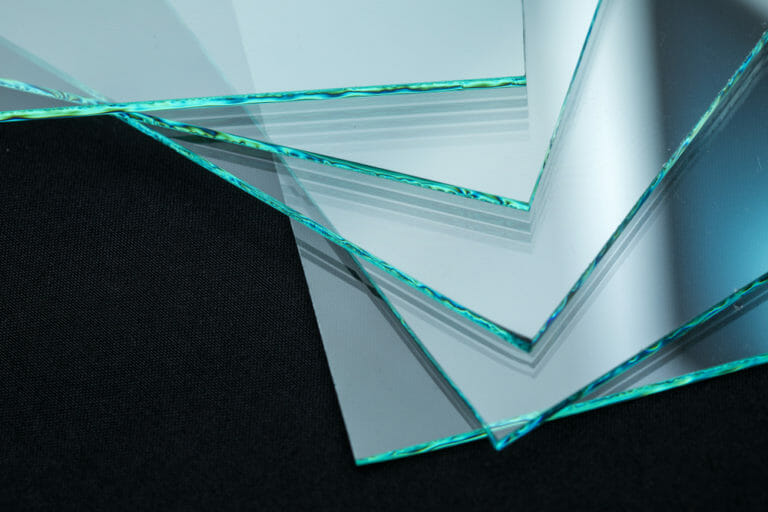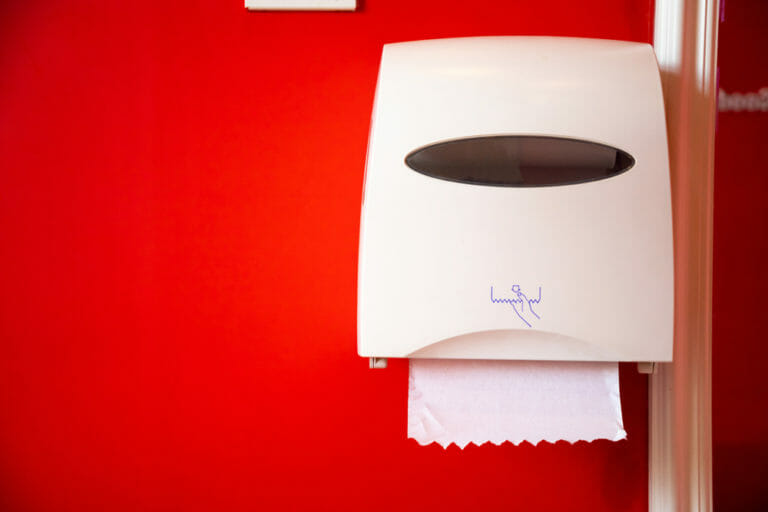The Ultimate Guide on How to Dispose of Bacon Grease Properly
Find out why pouring bacon grease down the sink is a bad idea and learn the eco-friendly way to dispose of it. Prevent plumbing issues and protect the environment.
Have you ever wondered what to do with the leftover bacon grease after cooking up a crispy batch? Did you know that pouring it down your sink can lead to plumbing issues and even environmental damage? In this blog post, we’ll provide valuable tips on how to properly dispose of or reuse bacon grease in an eco-friendly manner.
Get ready for some game-changing kitchen hacks that not only save your pipes but also our planet!
- Bacon grease should never be poured down the sink as it can clog pipes and cause sewer overflows, leading to environmental damage and plumbing issues.
- To dispose of bacon grease properly, allow it to cool and solidify before throwing it in the trash or reusing it for cooking.
- Other eco-friendly options include composting bacon grease (if free from meat particles) or taking it to a designated facility for safe disposal.
- When saving bacon grease for future use, strain out food particles, store it in a sealed container in a cool, dark place, and label it for easy identification.
The Environmental Impact of Improper Bacon Grease Disposal
Improper bacon grease disposal can lead to clogged pipes, sewer overflows, water contamination, and harm to wildlife if ingested.
Can clog pipes and contribute to sewer overflows
Bacon grease you pour down the drain can cause big problems. It does not stay liquid. When it cools, it turns solid and sticks to the insides of pipes. Over time, this makes a fat clog that blocks water flow.
Get Your Hand on Your Eco-Friendly Living Starter Guide!
This blockage can force wastewater and sewage back into your home or onto your streets. Fixing these sewer overflows costs a lot of money because they have harmful stuff in them. So next time, think hard before putting bacon grease in your sink!
Can contaminate water sources
Bacon grease dumped in the sink can make our water sick. It sticks to sewer pipes and makes blockages. These blockages stop clean water from moving along. This dirty, untreated water then flows into lakes or rivers.
Untreated bacon grease is bad for fish and other animals living in these waters. It’s also not good for people who use this water for drinking. We need to protect our water from pollution caused by bacon grease to keep it safe and clean.
can harm wildlife if They ingested
Animals can get sick if they eat bacon grease. Birds, fish and other small creatures may think it is food. This harmful waste can hurt their health and disrupt the circle of life in nature.
Pathogens in the grease can also spread disease among them. Let’s work to keep our wildlife safe by disposing of bacon grease responsibly.
Safe Ways to Dispose of Bacon Grease
To dispose of bacon grease safely, allow it to cool and solidify before tossing it in the trash. Reusing it for cooking, composting (if free from meat particles), or disposing at a designated facility are also eco-friendly options.
Allowing it to cool and solidify, then tossing it in the trash
After you finish cooking bacon, it’s important to dispose of the grease properly. One safe and easy way is to allow the grease to cool and solidify before tossing it in the trash. By doing this, you can avoid spills or leaks that could harm the environment.
Simply wait for the grease to become solid, then carefully transfer it into a sealed container before throwing it away. This method helps prevent clogged pipes and ensures that the grease doesn’t contaminate water sources or harm wildlife if ingested.
Reusing it for cooking
Reusing bacon grease for cooking is a great way to reduce food waste and be eco-friendly. Instead of throwing it away, you can save it for future use. After cooking bacon, let the grease cool down and solidify.
Then, you can strain out any bits of food and pour the clean grease into a container with a tight lid. Store it in the refrigerator or freezer until you’re ready to use it again. Bacon grease adds flavor to many dishes like roasted vegetables, fried eggs, or even popcorn! So next time you cook bacon, don’t throw away that delicious leftover grease – reuse it instead! It helps reduce waste and gives your meals an extra tasty boost.
Composting it (if it is free from meat particles)
Composting bacon grease can be a safe way to dispose of it, as long as there are no meat particles in it. However, you need to be careful because bacon grease has a high fat content, which can create a barrier that prevents oxygen from reaching the compost.
This makes it unsuitable for composting unless you take some precautions. If you want to compost bacon grease, make sure to mix it with other organic materials like leaves or grass clippings to help break down the fats.
Also, avoid putting too much bacon grease into your compost bin at once, as this can overload the system. Remember that not all city compost bins accept bacon grease and other greasy materials, so check with your local authorities first before adding it to your compost pile.
Disposing of it at a designated facility
To properly dispose of bacon grease, you can take it to a designated facility. Many cities have programs that allow residents to drop off cooking oil and grease at specific locations for safe disposal.
For example, in New York City, you can pour the cooled grease into a container and bring it to a recycling center or a scheduled hazardous waste disposal event organized by the Department of Environmental Protection (DEP).
By doing this, you ensure that the grease is handled and disposed of in an environmentally friendly way, preventing any harm to our pipes, water sources, or wildlife. So remember to check with your local authorities for information on where to take your bacon grease for proper disposal.
How to Properly Save Bacon Grease for Future Use
To ensure the quality and safety of your bacon grease for future use, strain out any food particles, store it in a sealed container in a cool, dark place, and label it for easy identification.
Straining out food particles
To properly save bacon grease for future use, it’s important to strain out any food particles. By doing this, you can remove leftover debris and ensure a cleaner storage or disposal process.
One way to strain the grease is by using a cheesecloth or sieve. Simply pour the warm liquid through the cloth or sieve, which will separate the solids from the bacon fat. This step is crucial because storing grease with food particles can lead to spoilage and an unpleasant odor.
Plus, strained bacon grease can be stored in a sealed container in a cool, dark place for later use in cooking. So don’t forget to strain your bacon grease before saving it!
Storing it in a sealed container in a cool, dark place
To properly store bacon grease for future use, you should transfer it into a sealed container. Make sure the container is airtight to prevent any air from getting in and causing spoilage.
It’s also important to keep the container in a cool and dark place, like your pantry or kitchen cabinet. This helps maintain the quality of the grease and prevents it from going rancid quickly.
By storing bacon grease correctly, you can extend its shelf life and have it readily available for cooking whenever you need it. Remember to label the container so you know what it contains and when you stored it.
Labeling the container for future use
After straining the bacon grease into a sealable container, it’s important to label the container for future use. This helps you keep track of when you stored it and any other relevant information.
By labeling, you can easily identify the stored bacon grease and ensure its quality before using it again. Make sure to write down the date of storage and any additional details that might be useful later on.
Having a labeled container will help you maintain the freshness of your saved bacon grease and avoid confusion in the future.
Alternative Cooking Methods to Reduce Bacon Grease Disposal
Reduce the need for bacon grease disposal by baking your bacon in the oven or using a grill pan lined with parchment paper.
Baking bacon in the oven
Baking bacon in the oven is a great way to minimize grease and make disposal easier. When you cook bacon in the oven, it reduces the amount of grease that splatters everywhere. This means less mess to clean up afterward! Plus, baking bacon is perfect for cooking a large batch at once, making it ideal for feeding a crowd.
Use parchment paper on a grill pan to prevent the bacon from sticking and facilitate easy grease disposal. It’s an efficient and environmentally friendly cooking method that helps reduce waste and keeps your kitchen cleaner too! So why not give oven-baked bacon a try?.
Using a grill pan lined with parchment paper
To reduce the amount of bacon grease you need to dispose of, try using a grill pan lined with parchment paper. This cooking method is simple and effective. By baking your bacon on the grill pan with the parchment paper, you’ll catch most of the grease, making clean-up easier and reducing environmental impact.
The parchment paper helps absorb some of the excess fat, limiting how much grease ends up in your drain or trash. It’s a practical way to enjoy your crispy bacon while being mindful of proper disposal methods.
So next time you’re craving bacon, give this alternative method a try and help minimize grease waste at the same time!
Misconceptions and Alternative Uses for Bacon Grease
There are common misconceptions about how to properly dispose of bacon grease, but there are also alternative uses for this versatile cooking byproduct.
Common misconceptions about disposal
There are some common misconceptions when it comes to the proper disposal of bacon grease. One misconception is that it’s okay to pour it down the drain. However, this can lead to clogged pipes and sewer overflows, causing harm to the environment and plumbing issues in your home.
Another misconception is that bacon grease can be safely composted. In reality, composting bacon grease is not recommended because it contains dangerous pathogens and can attract predatory animals.
It’s important to know the facts about proper disposal methods for bacon grease to prevent any negative impact on our environment and avoid potential problems in our homes.
Other potential uses such as biodiesel production, soap making, and animal feed
Did you know that bacon grease can be used for more than just cooking? It has other potential uses that are both practical and sustainable. One option is using bacon grease to produce biodiesel, which is a renewable energy source.
Another possibility is making soap with it through a process called saponification. And if you have livestock, bacon grease can be added to their feed as a source of nutrition. So instead of throwing away your leftover bacon grease, consider exploring these alternative uses that benefit the environment and reduce waste.
Conclusion
In conclusion, proper disposal of bacon grease is essential to protect the environment and prevent plumbing problems. By allowing it to cool and solidify before throwing it in the trash or reusing it for cooking, you can safely get rid of bacon grease.
Remember to strain out food particles, store it in a sealed container, and label it for future use. And don’t forget about alternative methods like composting or taking it to a designated facility.
Taking these steps will help keep your pipes clear and our water sources clean!









